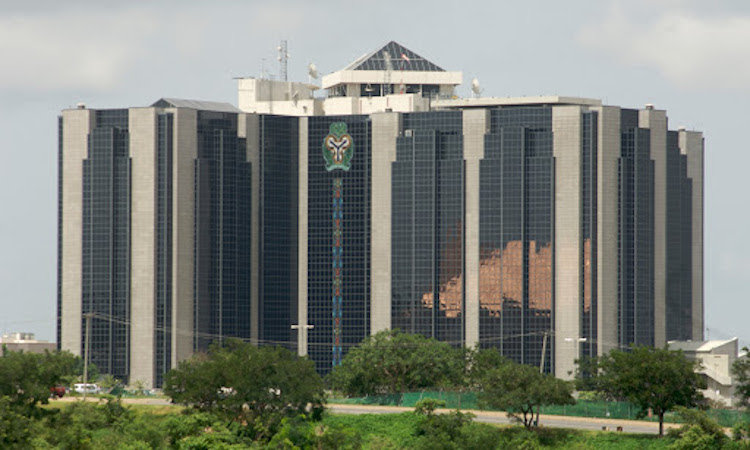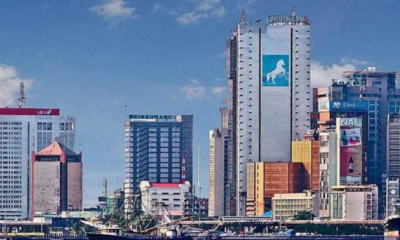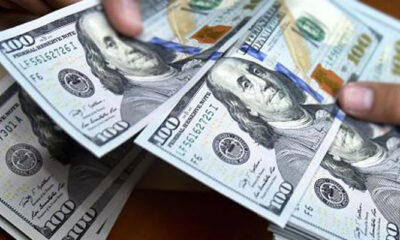Headlines
Central Bank Of Nigeria Debits Banks N1.4 Trillion For Failing To Meet CRR Targets

The Central Bank of Nigeria (CBN) has debited Nigerian commercial banks a mountainous sum of N1.4 trillion for failing to match Cash Reserve Requirement (CRR) targets.
Brandnewsday learned that the cash reserve requirement is the minimum amount banks are expected to retain with the CBN from customer deposits. However, some Nigerian banks have failed to meet the set standard, thus, resorted to a fine of the whooping sum of money.
According to Nairametrics, we reliably obtained this information from sources within the sector and has a copy of the list of banks that have been debited. The Central Bank also published some of this data in some Newspapers on Saturday.
Below is the list of banks severely hit by the CBN debits; Zenith Bank came first in ranked with about N355.9 billion while FBNH and UBA came second and third with N208 billion and N204 billion respectively. Here is the list of debits
Zenith Bank: N355.9 billion
UBA: N204.7 billion
First Bank: N206.1 billion
Stanbic IBTC: N143.9 billion
Standard Chartered: N120.6 billion
What Is the Cash Reserve Requirement (CRR)
In January 2020, the Monetary Policy Committee (MPC) of the Central Bank of Nigeria (CBN) raised the Cash Reserve Ratio by 5% to 27.5%. The move shocked bankers who had expected the CBN to taper down on its tight monetary policies considering the economic headwinds. This was doing well before the outbreak of the COVID-19 pandemic.
According to the CBN Governor, Godwin Emefiele, the decision to hold other rates was informed by the conviction of the committee members that there is a need to observe the response of the economy to several policies introduced by the Central Bank.
In a press statement issued by the CBN, the MPC declared that the persistent increase in the inflation rate, which stood at 11.98% in December 2019 is a source of concern. Hence, the committee disclosed that inflation above 12% is inimical to output growth in the Nigerian economy.
The CBN consequently imposed a loan to deposit ratio of 65% which means banks will also have to lend out 65% of their deposits. This is in line with the Central bank drive to get banks to lend more to the private sector, rather than invest in treasury bills and other financial derivative products that haven’t actually materialized in lending to critical sectors to the business.
What Are Banks Reactions To This?
Reacting to the CRR policy, banks are complaining bitterly that the CRR policy has affected their Net Interest Income. The CRR involves reducing the amount of money available to banks to lend further reducing their profitability. By debiting banks for failing to meet CRR targets, the CBN is effectively denying banks of the ability to earn an income in customer deposits.
Meanwhile, many banks have also decided to reduce their deposit impulse to avoid further penalties. However, banks overall deposits increased from N22 trillion in 2018 to N24.4 trillion as at December 2019. But deposit rates stagnated in the last quarter of the year growing from N23.1 trillion to N24.4 trillion. Deposits are divided into Demand Deposits at N7.1 trillion and Time, Savings and Foreign Currency Deposits of N17.3 trillion.
Most tier 2 banks also cut their dividend payment in response to a raft of hawkish policy moves from the CBN. By cutting dividends, banks are effectively keeping some of their cash in anticipation of possible sterilization of their funds. Bank deposit with the CBN was about N6.4 trillion in December 2019 out of which reserve requirements was N5.6 trillion. Cash Reserves Requirements with the CBN was just N4.8 trillion as of September 2019.
For example, if a bank as a is at 60% LDR instead of 65%, the central bank will debit the banks 50% of the 5% differential as part of its CRR charge. This could be the reason behind this.
In an analysis, this could be a move by the CBN to “block banks from going into the FX market” to make money from speculation on the exchange rate once the Covid-19 situation is over.
















